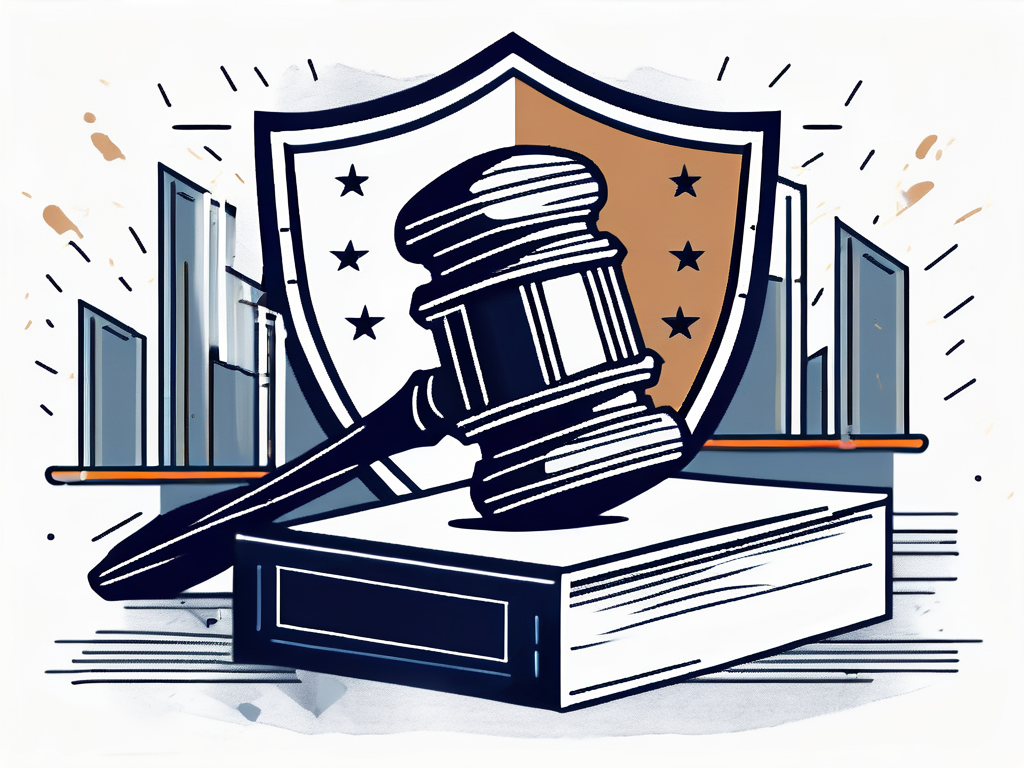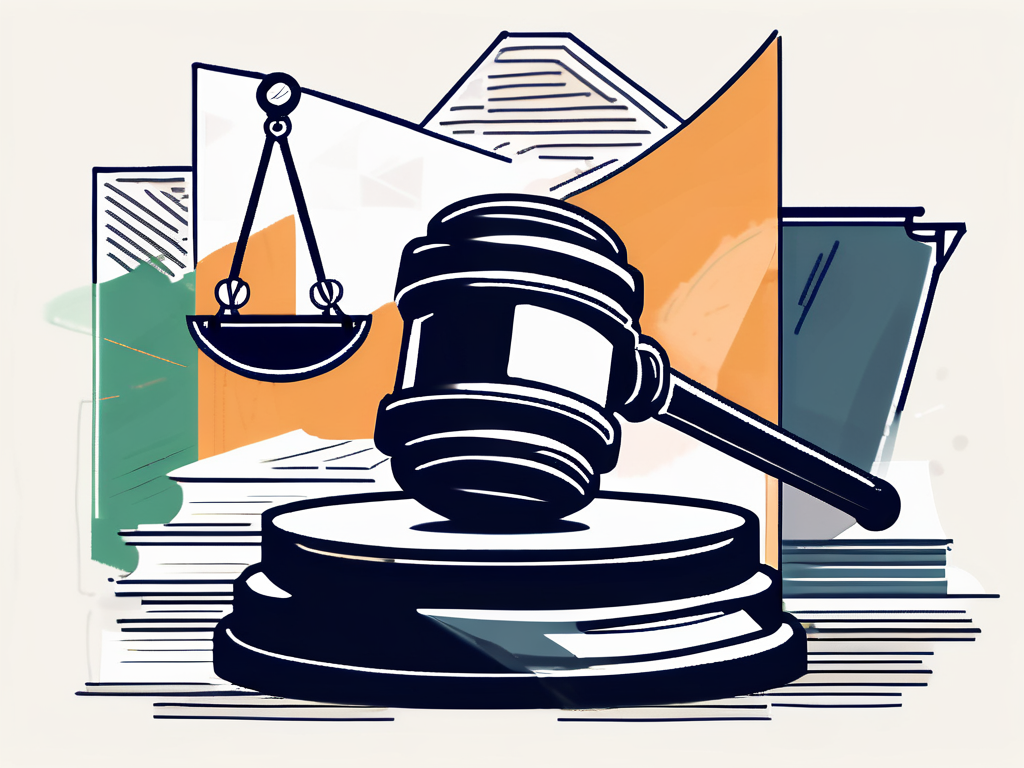Legal expense insurance is a useful coverage option that provides financial protection in legal matters. This article will explore the different aspects of legal expense insurance, including its definition, types, coverage, cost, and tips for choosing the right policy.
Understanding Legal Expense Insurance
Definition and Basics of Legal Expense Insurance
Legal expense insurance, also known as legal protection insurance, is a type of coverage that helps policyholders manage the costs associated with legal matters. It provides financial support for legal fees, expert witness expenses, court costs, and other related expenses.

Legal expense insurance can be purchased as a standalone policy or as an add-on to an existing insurance policy, such as homeowners or auto insurance. It is designed to protect individuals and businesses against unexpected legal expenses that may arise from various legal issues.
Legal expense insurance operates on the principle of risk management, where policyholders pay a premium to an insurance company in exchange for coverage of potential legal costs. This type of insurance can be particularly beneficial for individuals and businesses who want to safeguard their financial well-being in the event of legal disputes or lawsuits.
When a policyholder faces a legal issue, they can contact their insurance provider to access legal services covered under their policy. This can include consultations with legal experts, representation in court proceedings, and assistance with negotiating settlements. By having legal expense insurance, individuals and businesses can focus on resolving their legal matters effectively without the added stress of financial burdens.
Importance of Legal Expense Insurance
Legal expenses can quickly add up, causing significant financial strain on individuals and businesses. Having legal expense insurance can give policyholders peace of mind, knowing that they have financial support to navigate legal matters without worrying about the costs involved.
Legal issues can arise unexpectedly, and without proper coverage, individuals and businesses may find themselves struggling to cover the expenses associated with hiring legal representation and managing other legal costs. Legal expense insurance provides an added layer of protection, ensuring that policyholders have access to legal assistance when they need it most.
Types of Legal Expense Insurance
Before the Event Insurance (BTE)
Before the Event (BTE) legal expense insurance is a type of coverage that is purchased before a legal issue arises. It provides policyholders with financial support for legal expenses incurred during the course of a legal dispute.
BTE insurance policies typically cover a range of legal issues, such as personal injury claims, employment disputes, property disputes, and contract disputes. The coverage may vary depending on the specific policy, so it’s important for individuals and businesses to carefully review the terms and conditions before purchasing a BTE policy.
One key benefit of BTE insurance is that it can help individuals and businesses avoid the financial burden of legal fees if they find themselves involved in a legal dispute. By having this type of insurance in place before any issues arise, policyholders can have peace of mind knowing that they have support in place to handle legal expenses.
After the Event Insurance (ATE)
After the Event (ATE) legal expense insurance is a type of coverage that is purchased after a legal issue arises. It provides policyholders with financial support for legal expenses associated with an ongoing legal dispute.
ATE insurance policies are typically used in situations where individuals or businesses have already incurred legal expenses but require additional financial support to continue pursuing their case. ATE policies may cover costs such as court fees, expert witness fees, and legal representation fees.
One advantage of ATE insurance is that it can help level the playing field for individuals or businesses involved in a legal dispute. By providing financial support for ongoing legal expenses, ATE insurance can help ensure that policyholders have the resources needed to pursue their case to a resolution.
Coverage of Legal Expense Insurance
Legal expense insurance is a valuable resource that can provide coverage for a wide range of legal matters, offering policyholders peace of mind in times of legal need. From employment disputes to personal injury claims, property disputes to contract disagreements, and even criminal defense, legal expense insurance is designed to offer financial protection and support when facing legal challenges.

What Legal Expense Insurance Covers
Legal expense insurance typically covers a wide range of legal matters, including but not limited to:
- Employment disputes
- Personal injury claims
- Property disputes
- Contract disputes
- Criminal defense
The specific coverage will vary depending on the policy and insurance provider. It’s important for policyholders to carefully review what is covered and what is excluded to ensure they have the necessary coverage for their specific legal needs.
Moreover, legal expense insurance can also provide coverage for legal fees, court costs, and other expenses associated with pursuing or defending a legal claim. This can help alleviate the financial burden that often comes with legal proceedings, allowing individuals and businesses to focus on resolving their legal issues without worrying about the costs involved.
What Legal Expense Insurance Does Not Cover
While legal expense insurance provides valuable coverage, it’s essential to understand its limitations. Legal expense insurance typically does not cover the following:
- Pre-existing legal disputes
- Claims where the likelihood of success is deemed low
- Legal matters relating to divorce or family law
- Fines or penalties imposed by the court
Again, the specific exclusions will vary depending on the policy and insurance provider. It’s crucial for individuals and businesses to thoroughly review the policy terms and conditions to understand what is covered and what is not.
Additionally, legal expense insurance may offer access to a network of experienced attorneys and legal professionals who can provide guidance and representation throughout the legal process. This added benefit can be invaluable in navigating complex legal issues and ensuring that policyholders receive the best possible legal support when they need it most.
Cost of Legal Expense Insurance
Factors Influencing the Cost
The cost of legal expense insurance can vary depending on several factors. Some key factors that influence the cost include:
- Policy coverage limits
- Policy deductible amount
- Types of legal issues covered
- Policyholder’s legal history
Insurance providers will assess these factors when determining the premium for legal expense insurance. The policy coverage limits refer to the maximum amount the insurance company will pay out for legal expenses. A higher coverage limit typically results in a higher premium, as it offers more extensive protection. On the other hand, a lower coverage limit may reduce the premium but could leave the policyholder exposed to higher out-of-pocket costs in the event of a legal issue.
The policy deductible amount is the portion of the legal expenses that the policyholder is responsible for before the insurance coverage kicks in. A lower deductible usually means a higher premium, while a higher deductible can lower the premium but requires the policyholder to pay more out of pocket initially.
Ways to Lower the Cost
While the cost of legal expense insurance can be influenced by various factors, there are a few strategies to help lower the cost:
- Shop around and compare quotes from multiple insurance providers
- Consider increasing the deductible amount to reduce the premium
- Bundle legal expense insurance with other insurance policies for potential discounts
- Maintain a clean legal history, as a history of legal disputes can impact the cost
Implementing these tips can help individuals and businesses find affordable legal expense insurance while still obtaining the necessary coverage. It’s important to note that while cost is a significant factor, it’s equally crucial to ensure that the policy provides adequate coverage for potential legal issues that may arise.
How to Choose the Right Legal Expense Insurance
Things to Consider When Choosing a Policy
Choosing the right legal expense insurance policy is vital to ensure adequate coverage. Here are a few key factors to consider:
- Coverage options: Evaluate the policy’s coverage limits and exclusions to determine if they align with your anticipated legal needs.
- Claims process: Research the insurance provider’s claims process to ensure it is efficient and responsive.
- Customer reviews: Read customer reviews and ratings to gather insights into the insurance provider’s reputation for customer service and claim handling.
- Policy cost: Compare quotes from different providers to obtain the best balance between coverage and cost.
Considering these factors will help individuals and businesses make an informed decision when selecting a legal expense insurance policy.
Tips for Comparing Different Policies
To effectively compare different legal expense insurance policies, follow these tips:
- Read the policy documents carefully to understand the coverage details, limits, and exclusions.
- Consider obtaining quotes from multiple insurance providers to compare premiums and coverage.
- Research and compare the reputation and financial stability of the insurance providers.
- Take note of any additional benefits or features offered by the insurance policies.
By following these tips, individuals and businesses can make informed decisions when comparing and selecting legal expense insurance policies.
Conclusion
Legal expense insurance is a valuable coverage option for individuals and businesses, providing financial protection against unexpected legal expenses. Understanding the basics of legal expense insurance, the types available, the coverage it offers, and the factors influencing its cost will help individuals and businesses make informed decisions when selecting the right policy.

By carefully considering their specific legal needs, comparing different policies, and exploring strategies to lower the cost, individuals and businesses can secure the necessary coverage and alleviate the financial burden that legal issues often bring.
